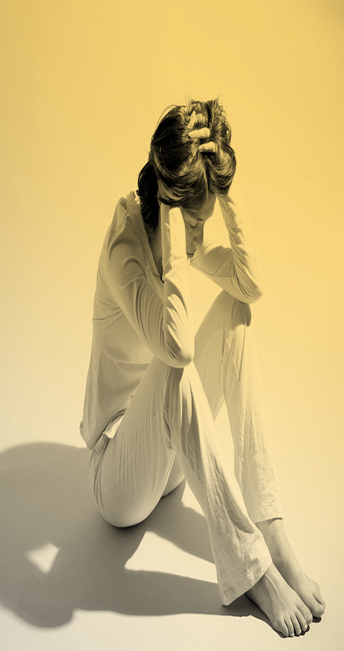Signs Of Depression
Do you have signs of depression? We all feel sad at times, that is part of being human. Often our sadness can be triggered by an external event. We may be grieving a relationship breakup, we may lose our job, someone in the family may be ill or perhaps life is just stressful. This kind of sadness usually soon passes. It may take a few days or a few weeks and then we start to feel better and manage to cope quite well. It is good to let ourselves feel these feelings and a bit of self-nurturing can do a lot to help us manage.
A Feeling of Gloom and Doom
Then there is a different kind of sadness. This can be a feeling of gloom and doom and suddenly your whole world feels dark. Perhaps you are not sleeping well or maybe sleeping too much. Maybe you do not feel like eating. When you wake up in the morning all you want to do is curl up and go back to sleep. Facing the day feels too hard. Perhaps this has been going on for several weeks. If you are feeling any of these more severe feelings there is a good chance that these could be signs of depression.
Life Feels Miserable
Depression is like the common cold of mental health problems. One out of five Australians will probably have an episode of or show signs of depression in their lifetime. This condition robs you of your joy and things that you used to give you pleasure are now no longer fun. It is hard being around happy people, you no longer laugh and life feels pretty miserable.
Treatment and Medication
Depression is a debilitating illness and can affect your physical health too. You may in fact with struggling with the symptoms of depression and anxiety. The good news is that the treatments today are highly effective. Helping someone with depression often involves a combination of medication and some kind of interpersonal psychotherapy. Most depressive episodes usually pass if the appropriate treatment is received.
Not everyone who is depressed needs to go onto medication. At Zetland Psychotherapy a comprehensive assessment is conducted around your signs of depression. We look at when your mood started declining, what possible triggers there may have been for this, and your family background and then together we decide on the best way to treat you.
Medication is sometimes necessary to help to lift your mood so that you can get the maximum benefit out of your therapy. Your general practitioner will probably be able to prescribe a suitable drug for you. If you do not have a general practitioner that you know and trust we are able to offer you some names of good doctors to go to.
If you have very severe symptoms of depression, and you have been feeling this way for a long time, it may be more beneficial to be referred to a psychiatrist. These are doctors who specialise in all areas of mental health and are better equipped to treat the more treatment resistant depressions. Often they will use more than one drug to help you and it is the combination of two different medications that assist the more serious episodes. Furthermore psychiatrists are allowed to prescribe stronger drugs that general practitioners are not authorised to. If a psychiatrist is not able to assist helping someone with depression using all of these more sophisticated means, they may decide that there would be a benefit from an in-patient stay at a psychiatric facility. This is nothing to be afraid of. There are some excellent facilities in Sydney, staffed by caring professionals, who offer a full therapeutic program. Once you are an inpatient and you are still not getting better a decision may be made by your doctor to prescribe Electro-convulsive therapy (ECT). This is done under a light anaesthetic and is painless. This has been described as a miracle by many people suffering treatment resistant depression.
Psychodynamic Psychotherapy
On the other hand you may not need medication. You might just need someone to talk to and through the sharing of your feelings and concerns we may be able to make headway without involving anyone else in your treatment. The treatment style at Zetland Psychotherapy is psychodynamic psychotherapy. This focuses on establishing a warm and trusting relationship as well as getting a detailed family history. Part of this process may also involve some behavioural therapy. If you have been feeling depressed for a while you may have stopped doing many things that you used to enjoy. You may have even stopped leaving the house except for your doctor’s appointments. So part of our work is to slowly assist you to re-engage with your life. It may be as simple as going for a short walk each morning and attending to your house hold chores. As you start to feel better we can jointly decide what other activities you might feel ready to take on.
Depression is a serious condition but one that can be treated very successfully.

